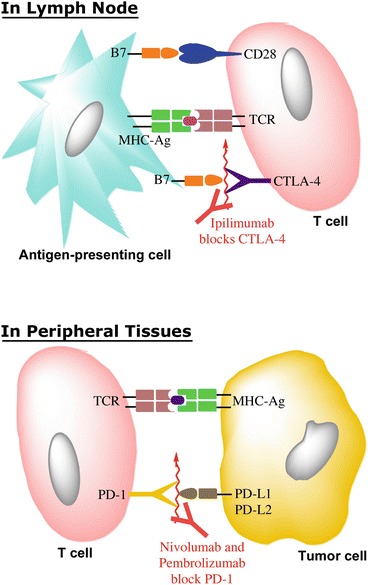Fig. 3.9.

Immune checkpoint targeting with anti-CTLA-4 and anti-PD-1 monoclonal antibodies. The cytotoxic T lymphocyte antigen 4 (CTLA-4) acts at the first checkpoint to modulate overactive T cells by competing for the B7 ligands. CTLA-4 only becomes functional after the start of T-cell activation when it competitively interacts with the B7 ligands resulting in downregulation of the T-cell response. Suppressing the immune response allowing cancer cells to be recognized as self and thus multiplying in the absence of antitumor immune challenge led to the strategy of blockade of the receptor by the anti-CTLA-4 immunostimulatory monoclonal antibody ipilimumab. The programmed cell death 1 (PD-1) receptor acts as another important immune checkpoint. Binding of PD-1 to its ligands PD-L1 and PD-L2 suppresses T-cell proliferation and activity allowing the tumor cells to avoid immune recognition and attack. Blocking at this second checkpoint by anti-PD-1 monoclonal antibodies nivolumab and pembrolizumab results in the reactivation of T cells including those with specificity for the tumor cells
